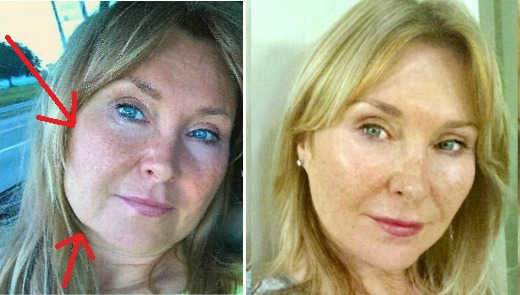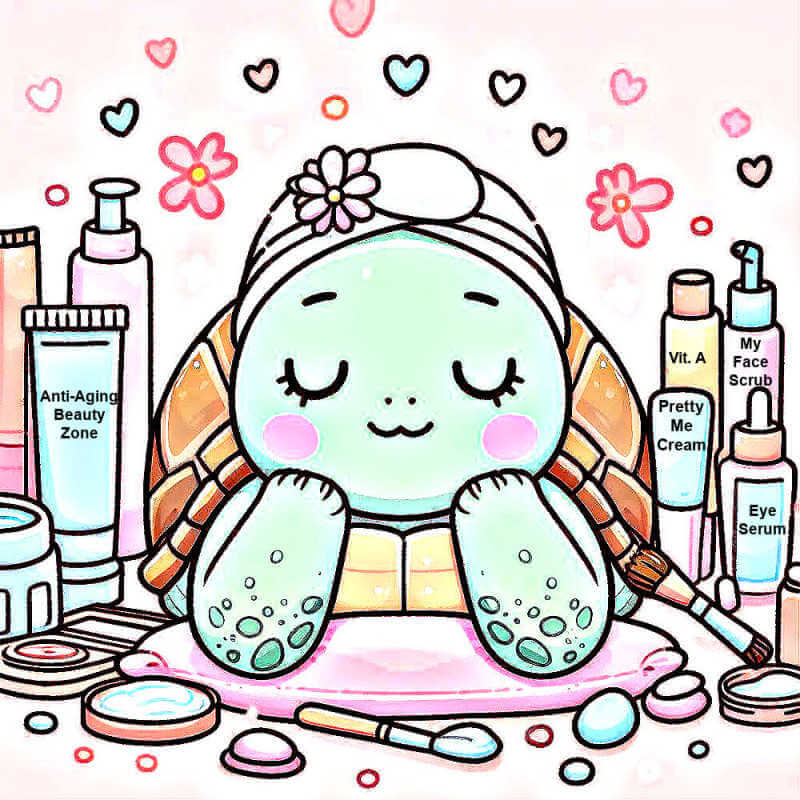- Home
- Tighten Naturally
- Facial Exercises
- Face Exercise Tips
Face Exercise:
What Really Helps the Face Look More Defined
I didn’t start facial exercises because I wanted a “new face.”
I started because my face was changing…
If you’re here, you might be wondering the same things I did:
• Do face exercises actually work?
• Am I too old to start?
• Is this worth the time and effort — or just hype?
Those are fair questions.
Facial exercises aren’t magic, and they won’t change bone structure or replace surgery.
But when they’re done correctly — and paired with massage — they can help the face look firmer, more supported, and better defined over time.
If you want the full breakdown (what’s happening with sagging, what exercises help most, and how I approach it), start with my main facial exercise guide: Sagging Face: Facial exercises overview.
For the most natural-looking results, I focus on a few simple moves I can actually stick with — and I pair them with massage.
What facial exercises can (and can’t) do
Before we get into examples, it helps to set expectations.
Facial exercises don’t:
- Change the width of your facial bones
- Create instant results
- Replace medical or surgical procedures
Facial exercises can:
- Support muscle tone under the skin
- Help cheeks look a little more lifted and defined
- Reduce the look of heaviness around the lower face/jaw
- Works best when paired with gentle massage
Results vary — based on age, skin quality, consistency, and lifestyle — but the changes tend to look natural, not overdone.
My experience (and why I kept going)
In my own case, facial exercises helped firm areas like the cheeks, nasolabial folds, and jawline. They didn’t make my face “smaller,” but they helped it look more structured and supported over time.
You can see what that looked like in the before-and-after photo below.
 My face fitness before and after pictures. There is at least a 10 yr. difference between the two pictures.
My face fitness before and after pictures. There is at least a 10 yr. difference between the two pictures.Can face exercises sculpt the face?
As you can see in the photo above, I was able to firm my face, especially around the nasal labial folds and jowls. And get more defined cheekbones.
Note: Facial exercises won't alter the structure or the width of your facial bones.
However, the right exercises can help lift, firm and build up the mid-face area (cheeks), giving the face a slimmer, defined look.
Unlike a face lift, the results of face exercises are limited, but promising.
A study highlighted in JAMA Dermatology examined the outcomes of a 20-week facial exercise regimen on the facial appearance of middle-aged women, revealing significant improvements in upper and lower cheek fullness.
Why massage matters
Facial exercises tend to work best when they’re paired with gentle massage. Massage supports circulation, helps release tension, and allows facial muscles to move more freely — which can make exercises feel more comfortable and effective over time.
That said, technique matters, especially around the jaw and lower face. Rather than crowding this page with massage instructions, I keep those details on dedicated pages so this one can stay focused on helping you decide whether facial exercises are right for you.
If massage is something you want to explore further, these guides go deeper:
Jowl exercises for lifting and definition
Jowl lift massage (no surgery)
At-home face lift massage (hands + tools)
Tips for best results (so you don’t waste your time)
1. Choose a program that includes isometric and resistance exercises.
This is VERY important. You should build up underlying facial muscles for the best results. Simple face yoga poses and face massages are great. But, after a certain age, you need resistance to build facial muscle.
2. Be consistent.
In the first 6-12 months, it's important to be consistent. Workout your face weekly, with equally spaced rest days in between. Aim for 3-4 times a week, every other day or so.
Once you're achieved a good build, and you're happy with your results, you only need to exercise about once a month.
Note: Doing it more often will not bring about faster results and can causes muscle breakdown. This is not a process you can rush.
3. Make sure to include face massages.
Choose a program that includes face massaging too. This helps keep the skin in good shape and the muscles smooth. Also, the added pressure on the face from massaging, helps keep facial bone mass in good shape.
Are facial exercises hard or time-consuming?
No! Learning the to do the exercises require some initial time. But then, most exercise programs only require a few minutes a week.
Once you've achieved a good foundation (after a few months), you can back off the exercise frequency (still keep the massage, though) and only do them a few times a month.
Of course, everyone is different. Monitoring your progress is important. And finding an exercise program you're comfortable with is also important.
The one I use comes with a pacing CD to guide you through every step. You don't have to remember which exercise to do next or even count. The CD does it all for you.
Related:
If your main concern is the lower face/neck area, you might also like: Turkey neck rescue.
Summary: Face exercise takeaways
If you decide facial exercises are right for you
If facial exercises feel like something you want to try, the key is choosing a program that’s structured, paced, and realistic.
From my experience, programs work best when they:
- include isometric + resistance exercises
- allow rest days so muscles aren’t overworked
- combine exercise with massage
- focus on gradual support, not quick fixes
The program I personally use follows those principles and helps keep me consistent without overdoing it.
👉 Here’s more information about the facial exercise program I use
Want More?
I share quick routines, beauty tweaks, and what’s working for me — straight to your inbox. Join the Club and get this free Cheek Shaper Video.
About the Author:
Linda Robison is a Facial Fitness Specialist and the founder of Anti-Aging Beauty Zone. With decades of hands-on experience, she shares practical, natural ways to lift and brighten mature skin—without expensive or invasive treatments.
Before you go ....
Please tap on the💙in the bottom right corner if you found this page helpful.
FOLLOW ME FOR MORE TIPS:
SHARE OR SAVE FOR LATER:




